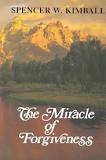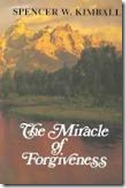The initial talk in the Priesthood session was delivered by Quinton L. Cook of the Quorum of the Twelve Apostles. He began by warning the priesthood holders (all faithful men in the Church) to avoid rationalizing away the choice of walking a righteous life. In LDS parlance this does not merely mean abiding by the teachings of Jesus or performing acts of kindness but was explained by Elder Cook as “performing temple endowments, keeping the commandments, and achieving a temple marriage.” These concepts coincide with LDS teachings regarding the Mormon doctrine of the afterlife.
The twelfth president of the Church Spencer W. Kimball taught,
“Those without eternal marriage may be angels. Now, the angels will be the people who did not go to the temple, who did not have their work done in the temple. And if there are some of us who make no effort to cement these ties, we may be angels for the rest of eternity. But if we do all in our power and seal our wives or husbands to us…then we may become gods and pass by the angels in heaven” (Spencer W. Kimball, The Teachings of Spencer W. Kimball, pp. 51).
It was then fitting that the LDS Apostle continued his lecture with a warning to those comfortable living the “single life.” He carefully intoned, “Single men should be uncomfortable.” Living single, he continued “is not compatible with sound doctrine.”The Doctrine and Covenants (D&C) section 132 provides foundational church teachings on the subject of marriage. In it we are told of a “new and everlasting covenant.” Those who do not keep this covenant will be damned (unable to progress to godhood), “for no one can reject this covenant and be permitted to enter into my glory.”Those covenants and contracts which are entered into outside of the temple endowment ceremony are considered null and void in eternity (v. 7,15) but if they keep these oaths and covenants ratified in an LDS Temple ceremony, “they shall pass by the angels, and the gods, which are set there, to their exaltation and glory in all things, as hath been sealed upon their heads, which glory shall be a fulness and a continuation of the seeds forever and ever. Then shall they be gods” (v. 19-20a).
These teachings, of course, are out of step with both the Bible as well as the Book of Mormon. The entire course of the Biblical scriptures is one of monotheism (belief in one god). This goes back to the earliest days of Judaism. A Psalm written by Moses (Psa. 90) provides that God was never exalted but was, in fact, God from everlasting. Also, God, in Deuteronomy 32:39 states, “See now that I, even I, am he, and there is no god beside me.” The righteous prophet Amulek in Alma chapter 11 (in the Book of Mormon) declares that there is only one god and explains in verse 31 that an angel had revealed this truth unto him. These contradictions follow from what appears to be a change in Joseph Smith’s theology over time.
Apostle Cook continued with many warnings to the saints to be careful on the internet and to be authentic in the use of social media. Warnings like these may have some of their genesis in the current internet crises which has struck the Church. See the Swedish Rescue documents at Mormon Think. It was brazenly declared that Mormons celebrate truth of every kind. Many will wonder, why has the Church attempted to dissuade their members from finding truths out about the history and theological metamorphoses that have transpired in their past. A recent example of this comes by way of a former area general authority in Sweden, Hans Mattsson. Who had his genuine questions frustrated and or ignored (see Mormon Stories.) All the same, these sound warnings could be heeded by all Mormons and non-Mormons alike. The internet is full of potential for good or evil. Even the good on the internet can be a distraction from spiritual and eternal matters.
In conclusion a testimony was shared and the warning tone of the lecture continued when the membership was reminded that being valiant in their covenants was the dividing line between the terrestrial and celestial kingdoms. This stands as a safeguard to those waffling in their commitment to the Church.
The next talk was given by Seventy Craig C.Christensen. The central motif seemed to relate to the obtaining of a proper testimony. All those in attendance were encouraged to strengthen their own testimony of the restored Gospel. The Church, it was iterated, was founded upon the principle that anyone can ask anything from God and hear from him. The example of Joseph in the Sacred Grove was used as case in point to this statement. Elder Christensen made a reference to ones testimony being like a tree. He asserted that a testimony is not like an on-off switch. A tree requires long term care and watering. “Our feelings will fade,” he shared, “if we do not nourish them.”
Following this was Dean M. Davies, the second counselor to the presiding bishopric (which has the assignment of administration over the lesser, Aaronic, Priesthood). His major thrust was in encouraging the members to take care of the poor and needy and to be a catalyst toward faithfulness in the “Law of the Fast.” This is an LDS custom which requires members to fast from meals for one day per month. The money that would have been used to buy food by the individual is then donated to the Church for the singular use of caring for the poor and needy. Elder Davies taught that taking care of the poor is an essential Gospel principle and was one of four divinely appointed responsibilities which help individuals and families qualify for exaltation to godhood and life in the Celestial kingdom. Isaiah 58 seemed to be a bit misapplied toward this end. The chapter was used to admonish those listening toward fasting for the poor but the context actual repudiates the hypocritical fasts practice by the Jews at that time. The Lord told them that the fast which he requires was a fast toward righteousness and good deeds to the poor.
Incredibly, after the panoply of reminders to keep covenants, oaths and responsibilities by the current and previous speakers, the words of Jesus in Matthew 11:28-30 were invoked. It was difficult to hear the lectures and get the feeling that the burden of Mormonism is light. A casual reading of the previously referred to LDS scripture passage, D&C 132 contains numerous qualifiers and legal styled verbage which would be incredibly at home with similar texts in Jewish rabbinical literature such as the Midrash and Talmud where every possible angle is taken regarding every possible subject. It was against such legalities that Jesus waged war in order to free his people from being burdened by those who put heavy burdens on men’s backs but would not offer so much as a single finger to help them lift it.
Following this lecture was one delivered by the second counselor to the First Presidency, Dieter F. Uchtdorf. He began with the story of the Last Supper in the Gospel of John. Those disciples there at the table were surprised to hear their Lord tell them of his impending betrayal. Those there inquired of the Lord, “Is it I?” Elder Uchtdorf proclaimed this attitude as a pathway for life and equated it with the parable of the plank and the speck. He encouraged the crowd to ask the same question of themselves. This type of introspection could certainly be good, however, this brings up a key issue of departure between the Church of Jesus Christ of Latter-day Saints and Evangelical Christianity. For instance, Protestants might point out that the Apostle John, in his first epistle, informed his readers that he had written them this letter so that they “might know that they have eternal life” (1 John 5:13). Also, Paul, in Ephesians 3:12 states that our confidence comes through our faith in Jesus, not from our own works or keeping of any contracts or commitments. Previously, it has been sufficiently demonstrated that the faithful Mormon can never truly be certain of his position before God until the very end. For an excellent example of the burden many Mormons carry in this regard see the April 1992 Ensign article written by Stephen Robinson (which can be found here:, note especially the section on his wife Janet). Elder Uchtdorf encourages the listener, finally, that there is divine potential that Heavenly Father wants to cultivate within each one of us. One need not wonder at this. The statement is as literal as it probably can be.
The second to last talk was delivered by first counselor to the First Presidency Henry B. Eyering. This talk was often interrupted by emotional moments. Elder Eyering had to take frequent pauses to regain himself. The message’s topic was the Aaronic Priesthood. This is a priesthood covenant entered into by most Mormons when they are twelve years old and corresponds (supposedly) to the priesthood held by Aaron. Very few, if any, of the functions performed by Aaron and his sons are actually performed by Aaronic Priesthood holders. Elder Eyering spent most of his time telling nostalgic tales of his past. Memories of his early years in the priesthood were shared, as well as memories he had of his son at the same age were used to provide tips and bits of advice for how to treat the youths. Encouragement and praise should always precede and accompany words of admonishment.
Elder Eyering shared a story he remembered from his childhood of accompanying an older man in the church on an in home visit to help a widow. Of course we can commend him for being available for such a noble task but the lesson he learned might perhaps be troubling to many. He states that he learned all that he must do to have his sins forgiven as he accompanied this older brother on this task. It may surprise Elder Eyering that Paul actual proclaims that God “justifies the ungodly” through their belief. “Abraham believed God and it was counted to him as righteousness.” David himself was said to speak of the one who receives righteousness apart from the Law (see Romans 4). In fact, in Galatians 3 Paul says that we enter into promises made to Abraham by our faith because of a faithful Messiah (Jesus). He speaks of the Law in saying that it was temporary and came to increase the trespass. Now that we are in Jesus the previous arrangement is null and void just as a deed of inheritance is null and void when the one take possession of his inheritance.
The final talk was delivered by the prophet Thomas S. Monson. This final talk was very difficult to follow. President Monson appeared very frail and had difficulty not slurring his words. The opening tale was from WWII. The prophet told a story about the German ship the Bismarck. The shipped was proclaimed unsinkable and appeared to be just that, until a lucky British torpedo jammed the ships rudder. Because of this development the ship could only move around in a circle and was eventually sunk. We then hear of the prophet Daniel who was faithful to God in the face of trying circumstances and even was willing to go to the lion’s den for God. We too will be like the Bismarck if we succumb to the temptations of Satan who wants to destroy us. “May we be faithful as Daniel and Jacob, the brother of Nephi.” If we do this we are promised that we may find our way home to be with our Father forever.






